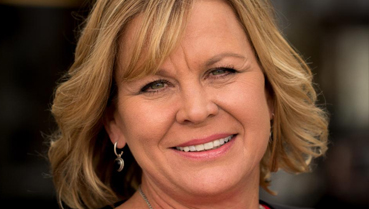A Response to the UN’s “Alarming” Report on Gender Bias
I came across a groundbreaking report from the United Nations that shook me to the core. Its findings were as disheartening as they were eye-opening: despite a decade passing, bias against women remains deeply entrenched, with an astonishing 90% of men and women worldwide still harboring such prejudices.
What struck me more was the glaring disparity between women’s educational advancements and their ongoing struggle for economic empowerment. Despite being more educated and skilled than ever, women continue to face a staggering gender income gap of 39% in favor of men, even in the 59 countries where women have surpassed men in education.
As a woman, I need no convincing of the bias women face in society and the workplace. However, the universality of this bias is what truly distressed me. It transcends borders, industries, and even genders—a pervasive global issue affecting us all.
The devaluing impacting all women is disconcerting. But I can’t help but think of young girls born outside privilege, who check the felon box, or who are minorities. Women in higher economic classes might face more barriers in politics and business, and that’s appalling. However, women in lower economic classes face more barriers to finding meaningful work, denying them independence and the ability to care for themselves and their families. How do we make sense of this? How, as a society, are we OK with this?
In my journey from incarceration to now holding a C-suite position, I’ve experienced the double whammy of gender bias and the stigma of being formerly incarcerated. I started my career with Televerde in 1996 while serving my prison sentence. I made some foolish choices, but I decided to use my time in prison as an opportunity to change the trajectory of my life.
Upon my release, I was offered a job in sales at Televerde. I worked my way up the corporate ladder, eventually becoming the Chief Impact Officer of Televerde and now the CEO of the Televerde Foundation. I realize, however, that my journey with Televerde has been an anomaly. Companies do not build their workforces with teams of incarcerated individuals. The trend for women like me is stigma and loss of economic opportunity. Case in point: Curiosity drove me to apply for a job outside Televerde in 2018. I was automatically rejected once I disclosed my felony conviction. The bias against formerly incarcerated individuals, especially women, remains a significant barrier to reentry and rehabilitation.
The UN report is more than a wake-up call—it’s an urgent call for action. We must address gender bias head-on, not just for the sake of women but for the betterment of our communities, our children, and our future.
Our journey toward equality involves several key steps:
- Support Empowerment Organizations: We must bolster organizations at the forefront of change. These entities extend beyond providing resources and opportunities for incarcerated and formerly incarcerated women. They are champions of women’s empowerment, advocates for educational equality, and catalysts for initiatives that uplift women in all spheres of life.
- Advocate for Policy Changes: We must actively advocate for policies that dismantle deeply entrenched systemic biases, tearing down the institutional barriers that have long hindered women’s progress and stifled their opportunities for success. By championing policy reforms that promote gender equality, we can create a more inclusive and equitable society for all.
- Confront Our Biases: We must confront our biases and prejudices, no matter how uncomfortable they may be. We must actively challenge personal and societal biases and work tirelessly to change them. This is not a task for the faint-hearted, but it’s a necessary step towards creating a world where every woman is valued and allowed to thrive.
- Build Alliances: This is not a battle women should or can fight alone. We need allies. We need men to stand with us, acknowledge the bias, and work to dismantle it. This isn’t about tipping the scales in favor of women but about balancing them to ensure fairness and equality.
- Promote Unity Among Women: To the women, we must remember that our strength lies in our unity. We need to support each other to collaborate rather than compete. We need to create a culture where every woman is valued and where every woman, regardless of her background or circumstances, has the opportunity to succeed.
My journey from incarceration to Corporate America has taught me that change is possible, even against the most daunting odds. But it requires more than just effort and commitment. It requires a willingness to challenge the status quo, not just to question how things are but envision how things could be. Let’s use the findings of the UN report not just as a mirror to reflect the world as it is but as a catalyst for change to create the world as it should be. Because when we lift women, we lift everyone.
Originally posted on Tucson.com


